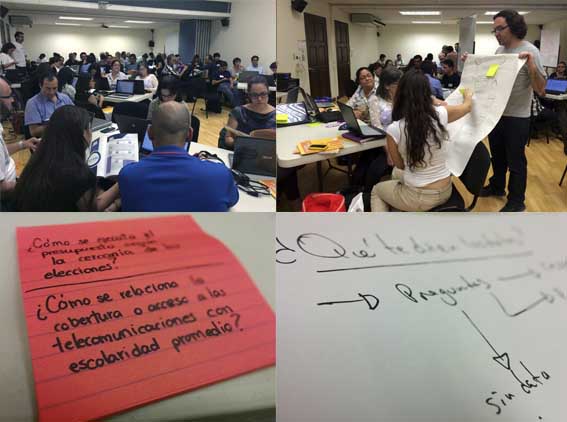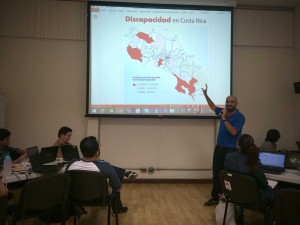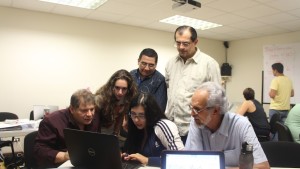Analyzing regional data: Data Expedition in Costa Rica
2.947 civil servants will be elected next year in Costa Rica, during the upcoming municipal elections. But, are the citizens aware of what’s going on in every district? Do they know the main issues their district is facing or the way the budget been spent?
To answer these questions Abriendo Datos Costa Rica, School of Data and Social Tic organized a Data Expedition in Costa Rica. As a result 57 people from civil society (journalists, analysts, programers, designers,…) worked in teams during eight hours with the data.

The database that was used in the expedition can be accessed here. We built it with data from the Supreme Electoral Tribunal, the National Institute of Statistics and the General Contoller of Finances.
What did the participants find?
The participants worked in ten different groups and each one tried to answer one specific question. This were some of the findings:
- One of the teams thought as an exercise: If we were to allocate money to elderly population in poverty, in which districts we would invest it? Analyzing the data, they concluded that in 17% of the districts a tenth of the p
 opulation was elderly people in poverty. This was a good example of how to use data to make informed decisions.
opulation was elderly people in poverty. This was a good example of how to use data to make informed decisions. - Another group asked: Which are the best districts to live in if you are a woman? The participants classified the districts according to their gender gap index and found that the ones with more gender inequality had a female occupation rate two times lower that the districts with less gender inequality.
- One team found that the district with more electoral participation in local elections had one of the worst budget spending. Why isn’t the local government spending on its population?
- Some other teams analyzed the districts with more disabled people or with more usage of technology.
During the activity the team of facilitators tried to explain the difference between correlation and causation, which was one of the most common mistakes the attendants were making when analyzing the data.
For this training we provided a database ready to use to the participants. But in the future it might be interesting to show them where where can they find public databases and more datasets to enrich their analysis.
Overall the best part of the experience was to see so many people interested in learning about how to use data, working in teams and answering questions that affect their daily lives. As Julio Cortés, one of the participants, said, the idea behind these activities is to help building a more informed society. So, we’ll definitely be planning new activities in the next months to encourage the usage of open data!
More pictures of the event here.


